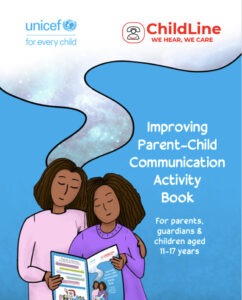Teaching Children to Recognize Grooming
When we imagine chid predators, most of us probably think of creepy old men and strangers that stare at children in a playground. However, this type of danger is not always so obvious. Sexual abuse or assaultoften comes from people the victim knows and/or trusts, like family members, family friends, neighbours, or people in authority. This type of abuse can also come from males or females. To prevent being immediately suspicious or potentially alerting the child to the danger they are in, predators often use certain subtle strategies to make children feel safe with them.
What is grooming?
Under normal circumstances, the word “grooming” can be thought of as the process of “getting ready” for something, like getting ready to go out or getting ready to go to bed. In reference to child predators, grooming is used to make children feel safe around them and gain their trust. Grooming is gradually done with the goal of preparing a child to accept abuse and/or to overlook disturbing behaviour.
Predators will not usually just admit their intentions to a child. Instead, to avoid getting caught, they will say and do certain things overtime to appear trustworthy or harmless to the child. They will wait until they feel that the child will not tell anyone about what they have done.
How will a child know if something is wrong?
In order to keep children safe, they must be taught what to look out for and how to recognize grooming. This may not always be easy, since some predators may have close family ties to the children they intend to abuse and may not be automatically suspicious to others.
Grooming can include:
- Having secret conversations (for example, through phone calls, text messages, or online messages) that make the child feel like the relationship is special.
- Giving gifts of things the child may not usually get from others, or things that they are not allowed to have.
- Sharing sexual images/videos about themselves or others (and encouraging the child to do the same).
- Encouraging the child to break rules (this may start small and gradually become more severe). This establishes a secret agreement that can be used to blackmail the child later.
- Testing boundaries of physical contact. This can involve initially subtle, perhaps “accidental” or “friendly”, touches like a hand on the shoulder, tickling, backrubs, or wrestling. This can slowly develop into more overtly sexual touches around or on private areas of the body.
- Confusing the child about what they experienced or how they should feel. If the child voices concern about the person’s behaviour or interactions with them, the predator may try to convince them that they misunderstood, that the actions were the child’s fault, or that the child would be responsible if something bad happened to the abuser if they were ever reported.
What should they do if they notice these signs?
No one wants children to be terrified of the world or trusting the people around them. However, as parents/guardians, it’s important to teach your children to always be careful, especially of those who make them feel unsafe or uncomfortable. Ensure that your child understands the concept of grooming and the possibility that danger can come from those who seem close to them.
Make sure that they understand that it’s okay to tell a trusted adult if someone is making them uncomfortable or endangering them in any way. Remind them that they are not responsible for what others do, or try to do, to them. Teach them about the different ways someone can attempt to groom a child and that they should tell someone they trust no matter who is doing it.
To report abuse of any kind, please call ChildLine for free at 800-4321 or 131 at any time of day.
[/et_pb_text][/et_pb_column][/et_pb_row][/et_pb_section]






